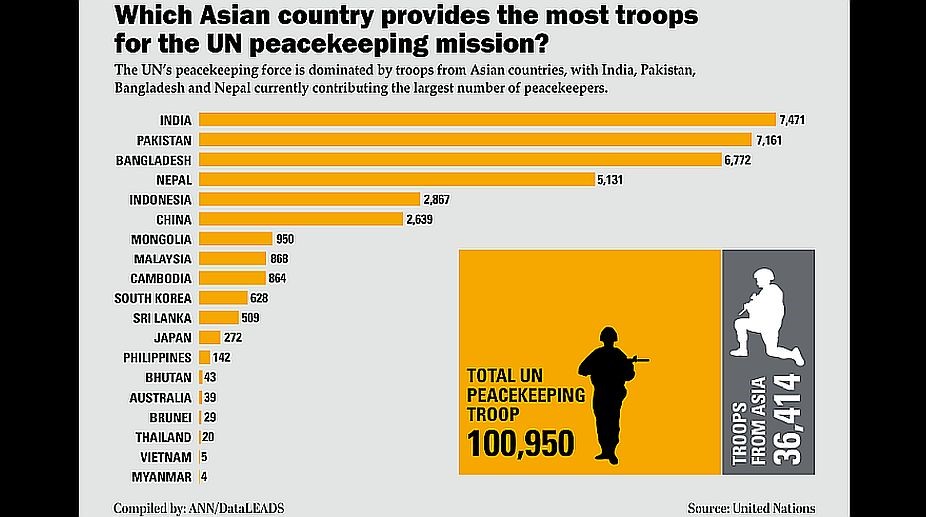Blog
Editorials
Daily Editorials
Gist of Editorials, 09 Aug
United Nations Peacekeeping
General Studies- II (Important International institutions)
BY Chrome Ias
Share
Trending
Latest Courses
United Nations Peacekeeping was created in 1948. United Nations Peacekeeping helps countries torn by conflict create conditions for lasting peace.
- UN peacekeepers provide security and the political and peace building support to help countries make the difficult, early transition from conflict to peace.
- Its first mission involved the establishment of the UN Truce Supervision Organization (UNTSO), which served to observe and maintain ceasefire during the 1948 Arab-Israeli War.
- Every peacekeeping mission is authorized by the Security Council.
UN Peacekeeping is guided by three basic principles:
- Consent of the parties;
- Impartiality;
- Non-use of force except in self-defence and defence of the mandate.
Global partnership:
- UN peacekeeping brings together the General Assembly, the Security Council, the Secretariat, troop and police contributors and the host governments in a combined effort to maintain international peace and security.
- Its strength lies in the legitimacy of the UN Charter and in the wide range of contributing countries that participate and provide precious resources.
What the UN Peacekeepers do?
- Peacekeepers protect civilians, actively prevent conflict, reduce violence, strengthen security and empower national authorities to assume these responsibilities.
- This requires a coherent security and peace building strategy that supports the political strategy.
- UN peacekeeping helps host countries to become more resilient to conflict, laying the groundwork to sustain long-term peace, including by addressing root causes of conflict.
Financing of UN Peacekeeping operations:
- The financial resources of UN Peacekeeping operations are the collective responsibility of UN Member States.
- According to UN Charter every Member State is legally obligated to pay their respective share for peacekeeping.
Composition:
- UN peacekeepers are often referred to as Blue Berets or Blue Helmets because of their light blue berets or helmets.
- They include soldiers, police officers, and civilian personnel.
- Civilian staff of peace operations is international civil servants, recruited and deployed by the UN Secretariat.
- A peacekeeper volunteer is required to be over the age of 25 with no maximum age limit.
- Peacekeeping forces are contributed by member states on a voluntary basis.
- European nations contribute nearly 6,000 units.
- Pakistan, India, and Bangladesh are among the largest individual contributors with around 8,000 units each. African nations contributed nearly half the total, almost 44,000 units.
UN Peacekeeping and India:
- India has a long tradition of sending women on UN peacekeeping missions.
- In 2007, India became the first country to deploy an all-women contingent to a UN peacekeeping mission.
- Currently, there are more than 6,700 troops and police from India who have been deployed to UN peacekeeping missions, the fourth highest amongst troop-contributing countries.
- Indian peacekeepers have served in UN peacekeeping missions around the world.
Source: The Hindu
BY Chrome Ias
Trending
Latest Courses
For Daily Updates
Sign up for daily emails to get the latest Chrome IAS news.






